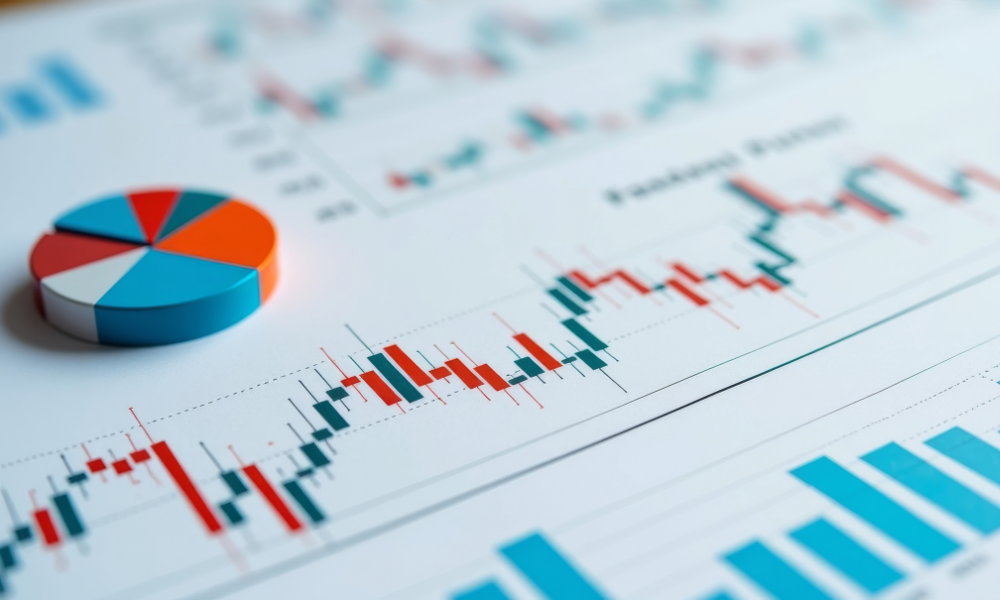New outlook delves into themes that will influence markets as the world enters a new decade

With just weeks to go before the new year, as well as a new decade, AGF Investments has released its 2020 outlook report, which highlights a handful of stories that are likely to set the future course of the global economy and financial markets.
“I think the major thing is going to be how much damage this prolonged US-China trade war has inflicted,” Kevin McCreadie, CEO and chief investment officer at AGF Management Limited, told WP. “And the longer it goes on, we have to ask whether it would prevent or delay a restart of the global economy.”
Negotiations between the two sides have been agonizingly slow, with hopes of a deal being repeatedly built up and dashed over the course of 2019. They may arrive at a truce as soon as mid-December, with the US potentially lifting some tariffs over time in exchange for a Chinese promise to buy more agricultural goods.
According to McCreadie, the markets are already pricing in prospects of such an event now. But even after such an agreement is forged, the ultimate outcome — whether it will be enough to undo any damage that the extended conflict has wrought — will likely only become clear well into 2020.
Across the pond is the second critical story, and the second critical question: will we see a negotiated or a hard Brexit? As McCreadie noted, the latter is looking increasingly less likely, and a negotiated Brexit will provide some degree of comfort for Europe, which Germany possibly feeling it to a greater extent than some of the peripheral countries.
“Either way, I would say Brexit will be behind us by the end of the first quarter,” he said.
Investors should also be watching the US impeachment proceedings as well as the presidential election next year — two stories which, from where McCreadie sits, are tightly intertwined.
“If you really think about it, the trial and a Supreme Court in the senate setting is going to tie up sitting senators,” he said. “That means Democratic candidates such as Elizabeth Warren and Bernie Sanders will be derailed from the campaign trail, and other hopefuls may benefit from that. By the end of spring, because of how the polls work in the US, you’ll have a pretty good view of who will face off.”
At this point, things come full circle, as the question of who’ll ultimately come to represent the Democratic party has potential implications on the US-China trade negotiations. With Joe Biden as the forerunner, China may grow lukewarm and not hurry to cut a deal. But if the candidate is someone who takes a harder line on trade issues, such as Elizabeth Warren, the Chinese may be inclined to walk away.
Depending on where the dominoes fall, McCreadie sees different sequences playing out at the level of the financial markets. A US-China deal by the first quarter and a re-acceleration in economic growth around the world may convince the Fed to hit the brakes on its rate-reduction campaign; bonds, then, would have a prospect of grinding higher in terms of yields based on better economic data. In such a scenario, he said, portfolios may be better weighted toward equities over bonds, with a tilt toward cyclical economies.
“But on the other side of the coin, if things have weakened a bit because the trade deal was struck too late, the Fed would come to the table,” McCreadie said. “That brings the prospects of more rate volatility, maybe movement toward lower rates; it’s probably not going to be so great for the equity markets either. So we really are in a wait-and-see situation.”
Given all that, AGF’s portfolio-management teams have tended to favour a defensive posture. With a slight underweight position in equities, they still leave open a chance to participate in a possible cyclical rebound. In the current fixed-income environment, the danger from higher rates outweighs the benefit from lower rates, so they’re more underweight on the fixed-income side. A modest amount of cash has also been left on the sidelines to be deployed opportunistically as the new year comes in.
But aside from those unspooling threads, McCreadie said, investors should be mindful of the larger theme that has defined the past decade — and its likely implications for the years ahead.
“I look at the past 10 years for equity investors, particularly those who have been in the US market since the middle of the ’09 recovery, and it’s probably been one of the strongest decades for equities,” he said. “I think we’re in the late innings, and the question is whether we can go into extra innings.”
In light of the increasing likelihood of a slowdown in the next few years, risks that come with traditional asset allocations are becoming more obvious. “The toolkit of an asset allocator has to broaden to include alternatives — not just for portfolio income, but also downside protection,” McCreadie stressed. “Investors who were 40 in 2000 are nearing their 60s, and they’ve gone through a number of vicious corrections for sure. We’re all going to have to think differently for our end investors about how to build a balanced approach to their allocation using alternative solutions.”



